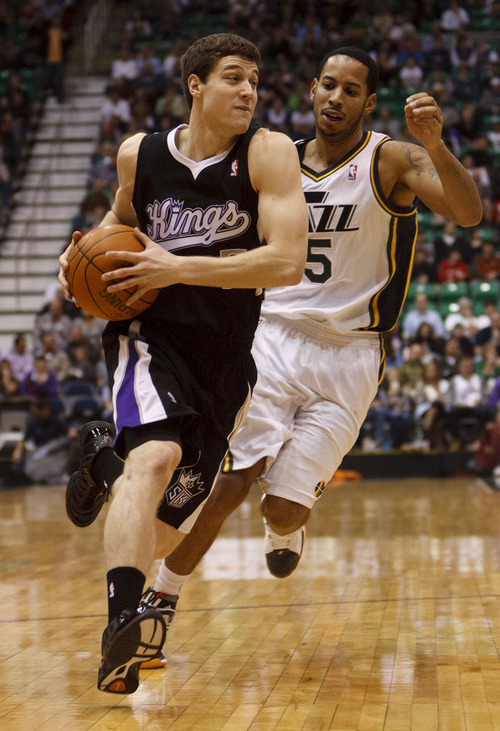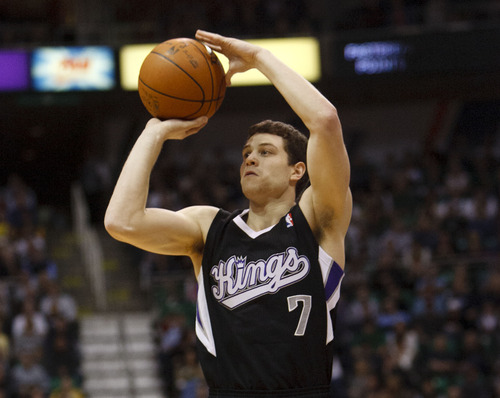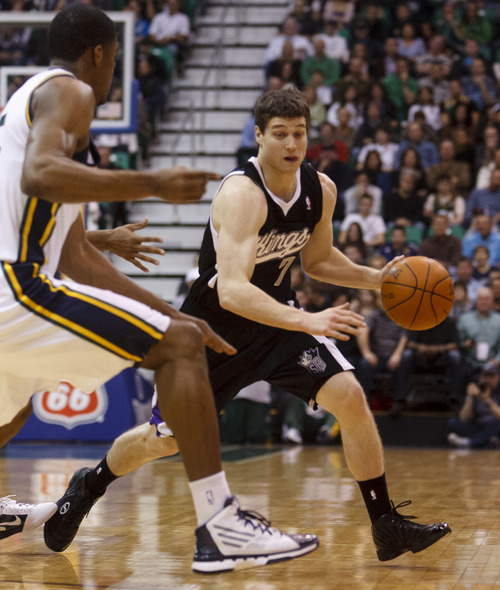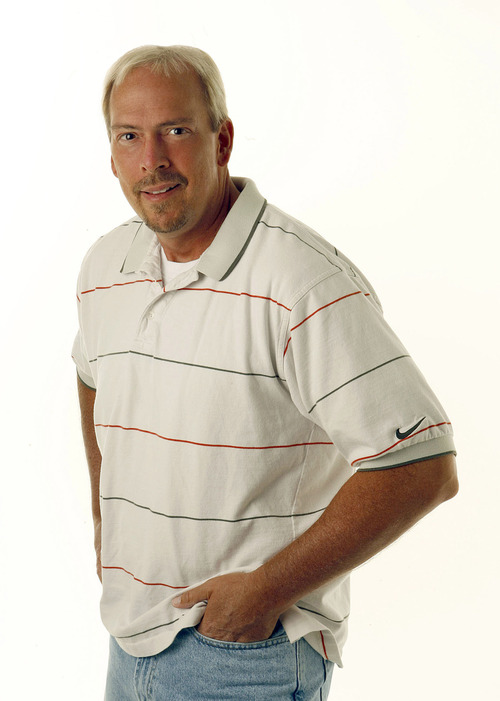This is an archived article that was published on sltrib.com in 2013, and information in the article may be outdated. It is provided only for personal research purposes and may not be reprinted.
Here's an idea that either will make your day or make you sick: The Jazz should trade for Jimmer Fredette.
No matter what is written here, no matter what argument is laid down, many already have made up their minds on the matter. Jimmer and his game have had — and still have — a real dividing effect on basketball fans around here. But I've talked with a few NBA player-personnel people, and they seemed to agree that there's a place for Fredette in the league.
Utah is that place.
The reasoning goes like this: Fredette can score, especially from deep. Even in the dysfunctional blob that was the Kings last season, Jimmer averaged 18 points per 36 minutes. He hit 41 percent of his 3-point shots. And he did that under a confused coach who jerked him around like a flounder on a hook. Even on nights when Fredette got minutes in the second quarter and lit it up, he strangely vanished for the remainder of the game, buried on the bench of a bad team that played bad team basketball led by a bad coach.
That coach is gone now, but the Kings are crowded at the guard position, so finding minutes for Fredette, enough for him to make a difference, might be difficult. The other night, Jimmer got a preseason start and he went for 23 points, dusting 9 of 15 shots, 5 of 7 from beyond the arc and totaling five assists. For those who picture the guard doing the ridiculous things he did in college, dominating the ball and averaging 30 points a night, forget about that under this scenario. Fredette isn't the answer to all the Jazz's problems.
He's just the answer to one.
He can shoot.
Although he has a high baller I.Q., he doesn't have a great handle. Jimmer can play some point guard, a spot at which the Jazz are lacking after the injury to Trey Burke, and he could help them in that regard. But his versatility as a combo-guard would be of particular use for a young club with young bigs who need help from somebody — anybody — who can provide a valuable service for Enes Kanter and Derrick Favors in their offensive games.
Create space.
That's what Fredette can do. He can flush from 3, opening room for Favors and Kanter to do what they do down low, to develop their men-at-work moves in the post.
There will be times this season when the Jazz, as presently constituted, will shoot the ball from distance as though they're heaving sofas and coffee tables into the back of a moving van. It will get ugly. We've already seen that in the preseason. Maybe Brandon Rush will help once he's healthy. Beyond the scored points, hitting bombs is so important because it — the threat of it — creates so many other positives at the offensive end.
Jimmer remains a defensive liability. That's an issue, the same way it is with a lot of other scorers, such as Steph Curry at Golden State. But defense, on the whole, won't be the Jazz's problem this season. When Favors was on the court a year ago, the Jazz gave up significantly fewer points than when he was on the bench. Help defense will be stressed more than it ever has been around here — with more bodies capable of and willing to erase the mistakes of others now playing more minutes.
Which is to say, the Jazz could take advantage of Fredette's strengths without getting killed by his weaknesses — in a moderate role, not a starring one. He could help them, not lead them to glory. He could also draw fans into a building in a year where that may be a bigger deal than it typically is. The Jazz are going to lose — a lot — while they develop their young talent. That's all part of the plan on their way to a difference-making draft pick in the high lottery. Utilizing, even in a reduced role, the presence of a guard who captivated the country his senior year at BYU and pulled all those Jimmerheads into the seats at the Marriott Center, is a bonus that makes too much sense for the Jazz to ignore.
Better for them to bump and skid with players fans want to watch than with players they don't. If Fredette can help the Jazz with their competitive business and their show business, what's the downside?
There's only one. It falls into the hands of Ty Corbin, who would have to manage some fans' unrealistic expectations for Jimmer and his playing time with the minutes the guard actually should play. Balanced against the positives, that negative seems minimal.
There is one other group out there: those who can't stand Fredette because they're still gathering themselves from the mania that surrounded him in college. If used properly, though, the Jazz and Jimmer could soothe many of those critics and make the situation a win-win, even as the Jazz lose a little less and make a little more (money) than they would otherwise.
GORDON MONSON hosts "The Big Show" with Spence Checketts weekdays from 3-7 p.m. on 97.5 FM/1280 and 960 AM The Zone. Twitter: @GordonMonson.









